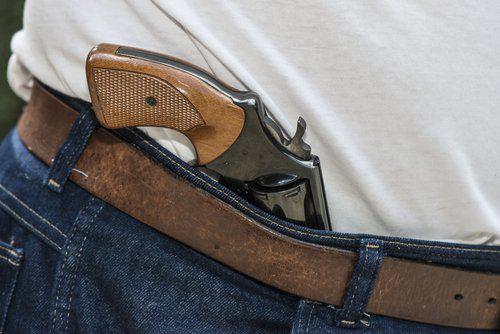Concealed Weapon Law in Wisconsin
 Wisconsin passed Act 35, a concealed weapon statute, in 2011. The statute makes provisions for Wisconsin residents to carry concealed weapons under certain circumstances. If you are not eligible to do so and are caught with a concealed weapon, you face serious criminal penalties and fines, so it is important to be familiar with the provisions of Act 35.
Wisconsin passed Act 35, a concealed weapon statute, in 2011. The statute makes provisions for Wisconsin residents to carry concealed weapons under certain circumstances. If you are not eligible to do so and are caught with a concealed weapon, you face serious criminal penalties and fines, so it is important to be familiar with the provisions of Act 35.
What Is a Concealed Weapon?
To understand what a concealed weapon is, you must understand how “concealed” is defined under the law, and even more broadly, what constitutes a “weapon” under Act 35. According to the law, concealed does not necessarily mean 100 percent hidden from view (like a gun inside of a holster inside of a zipped jacket), but it can also refer to weapons that are partially concealed. So, for instance, if you have a knife clipped to your belt loop or a holstered gun in your open jacket, you may be carrying a concealed weapon. The next important term to understand is “weapon”. When you hear the words concealed weapon, most likely what pops into your mind is a handgun. A weapon, however, is not limited to guns in Act 35. Knives, stun guns, and ASPs (batons) all require the holder to have a concealed carry permit. When it comes to the definition of concealed weapon, it is always better to be cautious. If you are unsure, you should contact an experienced Wisconsin criminal defense lawyer who is familiar with the provisions of Act 35. Who Is Authorized to Carry a Concealed Weapon in Wisconsin?Not everybody is eligible under the law to carry a concealed weapon. To be licensed to carry a concealed weapon, you must first submit a license application to the Wisconsin Department of Justice, which is available online. It takes several weeks after submitting an application to be approved, and under no circumstances are you allowed to carry a concealed weapon until the approval process is complete.
There are several requirements you must meet to carry a concealed weapon in the first place. To be eligible to obtain a concealed carry permit in Wisconsin, you must be: at least 21 years old; a Wisconsin resident with a current and valid Wisconsin driver’s license or identification card; not prohibited from possessing a firearm by court order, state law or federal law; and able to provide proof of adequate training, as required under Wisconsin law. You Cannot Carry Everywhere, Even after Obtaining a Concealed Carry Permit It is always your responsibility to know when and where you are able to carry a concealed weapon after obtaining a concealed carry permit. For example, the permit does not allow you to carry a concealed weapon inside of schools or inside of government buildings. You also may not carry concealed weapons on city buses, or in any store, restaurant, or other establishment that has a posted sign stating “no weapons permitted”. Even if you have a concealed carry permit, anyone under the influence of alcohol or drugs is prohibited from carrying a concealed weapon.If you are unsure whether you can carry a concealed weapon, or if you are facing criminal charges as a result of carrying a concealed weapon, contact our skilled Milwaukee criminal defense attorneys for a consultation on your case.
Sources:
https://docs.legis.wisconsin.gov/2011/related/acts/35.pdf
http://doj.state.wi.us/sites/default/files/dles/ccw/concealed-carry-application.pdf







